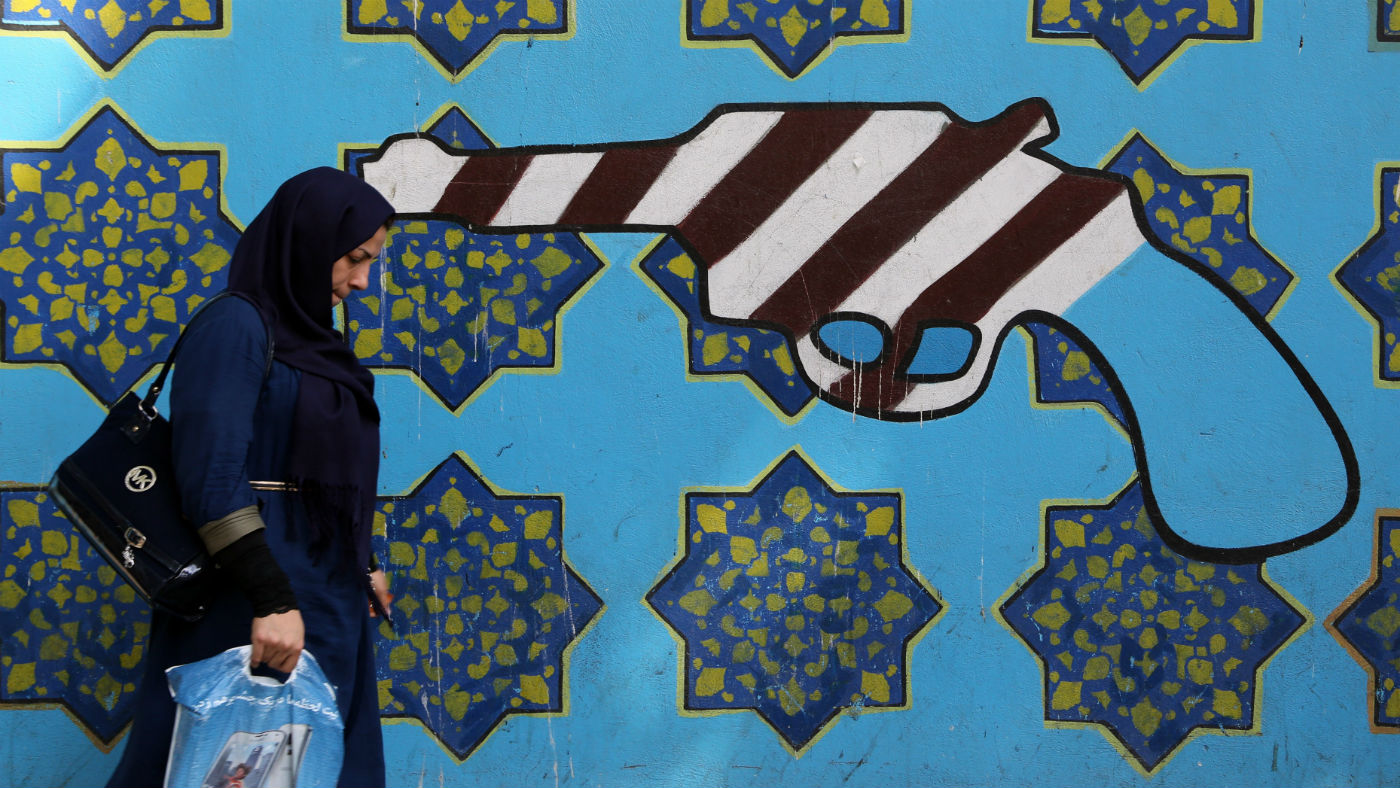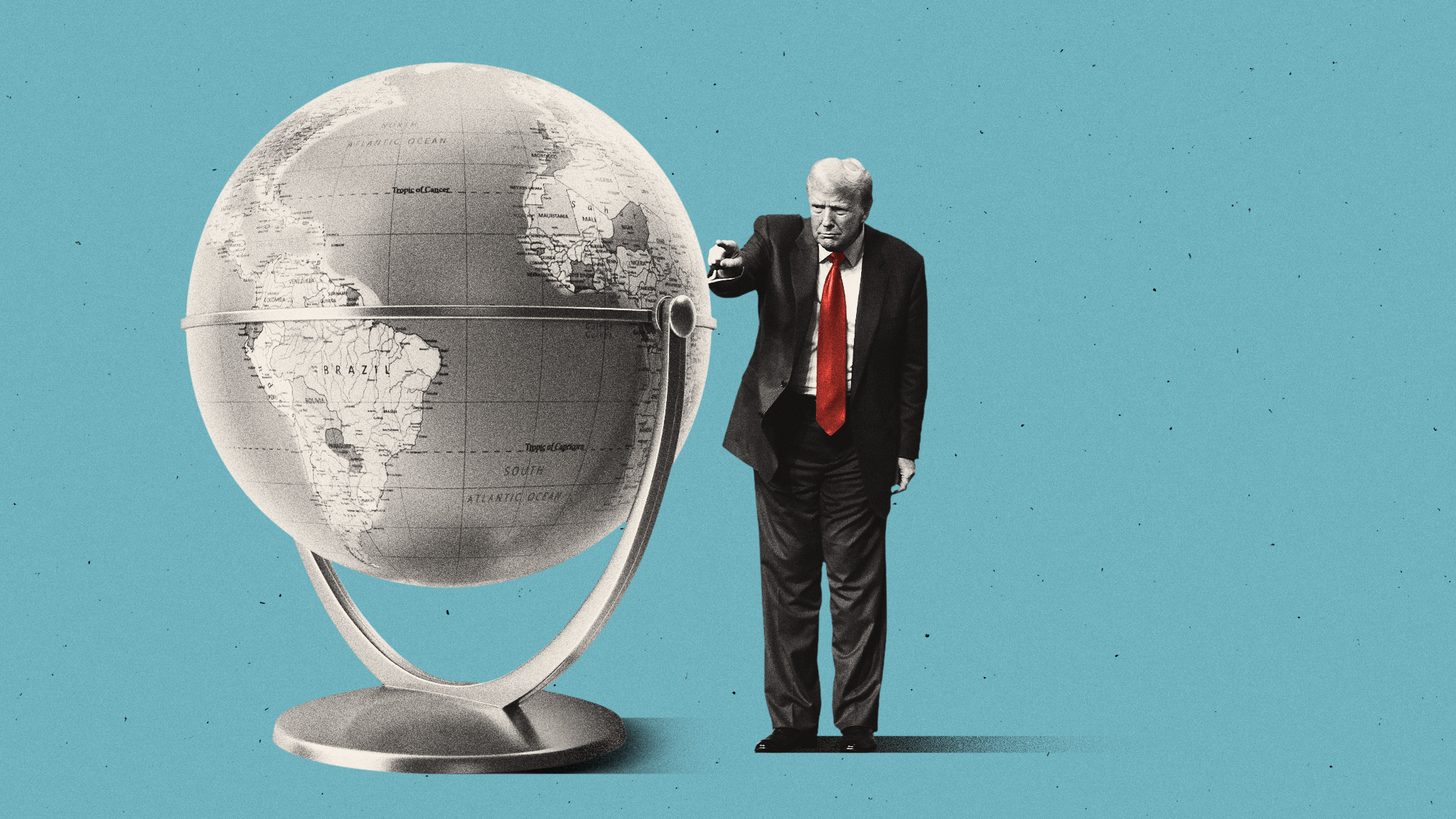Iran to breach nuclear deal ‘within ten days’
Amid rising tensions with the West, Tehran says it will exceed enriched uranium limit

A free daily email with the biggest news stories of the day – and the best features from TheWeek.com
You are now subscribed
Your newsletter sign-up was successful
Iran has said it will breach the limit for enriched uranium set out in the landmark 2015 international nuclear agreement within the next ten days, in a further escalation of tensions between Tehran and the West.
Behrouz Kamalvandi, the spokesman for the Iranian Atomic Energy Authority, said the country’s production of uranium enriched to a low level had increased fourfold and its stockpile would pass the 300kg limit by 27 June.
He also added Tehran could begin the process of enriching uranium closer to weapons-grade levels as early as next month.
The Week
Escape your echo chamber. Get the facts behind the news, plus analysis from multiple perspectives.

Sign up for The Week's Free Newsletters
From our morning news briefing to a weekly Good News Newsletter, get the best of The Week delivered directly to your inbox.
From our morning news briefing to a weekly Good News Newsletter, get the best of The Week delivered directly to your inbox.
Iran has been hit hard by harsh US sanctions imposed by the Trump administration after it unilaterally pulled out of the deal last year. Iranian oil exports have dropped to just 400,000 barrels a day, well below the levels needed to fund government spending.
Under the nuclear deal, Iran was permitted to stockpile limited amounts of enriched uranium and heavy water produced in that process, exporting any excess, but “doing so has become extremely difficult after the US revoked waivers that allowed Iran to export those excess stockpiles, effectively forcing Iran to halt enrichment or ignore the limits, which it is now doing”, says CNN.
The UK, France and Germany have been looking for ways circumvent US sanctions and keep the deal alive but have so far failed to protect private-sector firms from the threat of secondary sanctions if they continue to trade with Iran.
The Financial Times says yesterday’s announcement “added to a sense that the nuclear deal Iran signed with world powers in 2015, which has been on life support, is in danger of total collapse”.
A free daily email with the biggest news stories of the day – and the best features from TheWeek.com
The Guardian’s diplomatic editor Patrick Wintour, says this “puts more pressure on Europe to come up with new terms for Iran’s 2015 nuclear deal”.
The west European signatories to the deal have defended the nuclear accord as the best way to limit Iran’s enrichment of uranium, “but Iran has repeatedly criticised delays in setting up a European mechanism that would shield trade with Iran from US sanctions in an effort to save the nuclear deal”, reports Reuters.
Last week, the EU agreed an unpublished timetable of its own with Iran to help ease trade between Tehran and European nations, “but it is not clear whether the measures will come quickly enough or be sufficient to persuade Iran to rethink its strategy of chipping away at the deal”, writes Wintour.
Iran has not previously breached the accord, but last month Tehran said it would increase its atomic activity as the Iranian economy reels from the impact of US sanctions. The UK, France and Germany have warned Iran not to violate the deal and have previously said they would have no choice but to reimpose their own sanctions in that event.
However, “context in international affairs is everything”, says the BBC’s Jonathan Marcus.
Since it signalled its intention to break out from some of the constraints imposed by the nuclear deal in early May, Iran has been accused by the US and other Western nations of two sets of attacks on oil tankers in the Gulf.
This has pushed Washington and Tehran to the verge of a military clash which could have far-reaching implications for the region. Israel waded into the already unstable situation yesterday by urging world powers to step up sanctions against Tehran swiftly should it exceed the enriched uranium limit.
“It remained unclear how much of Iran’s announcements were bluster and spin aimed at putting pressure on nuclear deal participants including the EU, UK, France, Germany, Russia and China,” says The Independent.
“Iran may also have been trying to up its leverage with the Trump administration, which has demanded fresh talks to renegotiate a ‘better deal’,” says the news site.
It is a risky strategy, however, and its further threat to increase its level of enrichment to a stage that would bring it much closer to weapons-grade material “adds another element of risk into an already combustible mix”, says Marcus.
-
 Political cartoons for February 10
Political cartoons for February 10Cartoons Tuesday's political cartoons include halftime hate, the America First Games, and Cupid's woe
-
 Why is Prince William in Saudi Arabia?
Why is Prince William in Saudi Arabia?Today’s Big Question Government requested royal visit to boost trade and ties with Middle East powerhouse, but critics balk at kingdom’s human rights record
-
 Wuthering Heights: ‘wildly fun’ reinvention of the classic novel lacks depth
Wuthering Heights: ‘wildly fun’ reinvention of the classic novel lacks depthTalking Point Emerald Fennell splits the critics with her sizzling spin on Emily Brontë’s gothic tale
-
 New START: the final US-Russia nuclear treaty about to expire
New START: the final US-Russia nuclear treaty about to expireThe Explainer The last agreement between Washington and Moscow expires within weeks
-
 Would Europe defend Greenland from US aggression?
Would Europe defend Greenland from US aggression?Today’s Big Question ‘Mildness’ of EU pushback against Trump provocation ‘illustrates the bind Europe finds itself in’
-
 Greenland, Colombia, Cuba: where is Donald Trump eyeing up next?
Greenland, Colombia, Cuba: where is Donald Trump eyeing up next?Today's Big Question Ousting Venezuela’s leader could embolden the US administration to exert its dominance elsewhere
-
 Did Trump just end the US-Europe alliance?
Did Trump just end the US-Europe alliance?Today's Big Question New US national security policy drops ‘grenade’ on Europe and should serve as ‘the mother of all wake-up calls’
-
 Trump peace deal: an offer Zelenskyy can’t refuse?
Trump peace deal: an offer Zelenskyy can’t refuse?Today’s Big Question ‘Unpalatable’ US plan may strengthen embattled Ukrainian president at home
-
 Vladimir Putin’s ‘nuclear tsunami’ missile
Vladimir Putin’s ‘nuclear tsunami’ missileThe Explainer Russian president has boasted that there is no way to intercept the new weapon
-
 Russia’s war games and the threat to Nato
Russia’s war games and the threat to NatoIn depth Incursion into Poland and Zapad 2025 exercises seen as a test for Europe
-
 What will bring Vladimir Putin to the negotiating table?
What will bring Vladimir Putin to the negotiating table?Today’s Big Question With diplomatic efforts stalling, the US and EU turn again to sanctions as Russian drone strikes on Poland risk dramatically escalating conflict